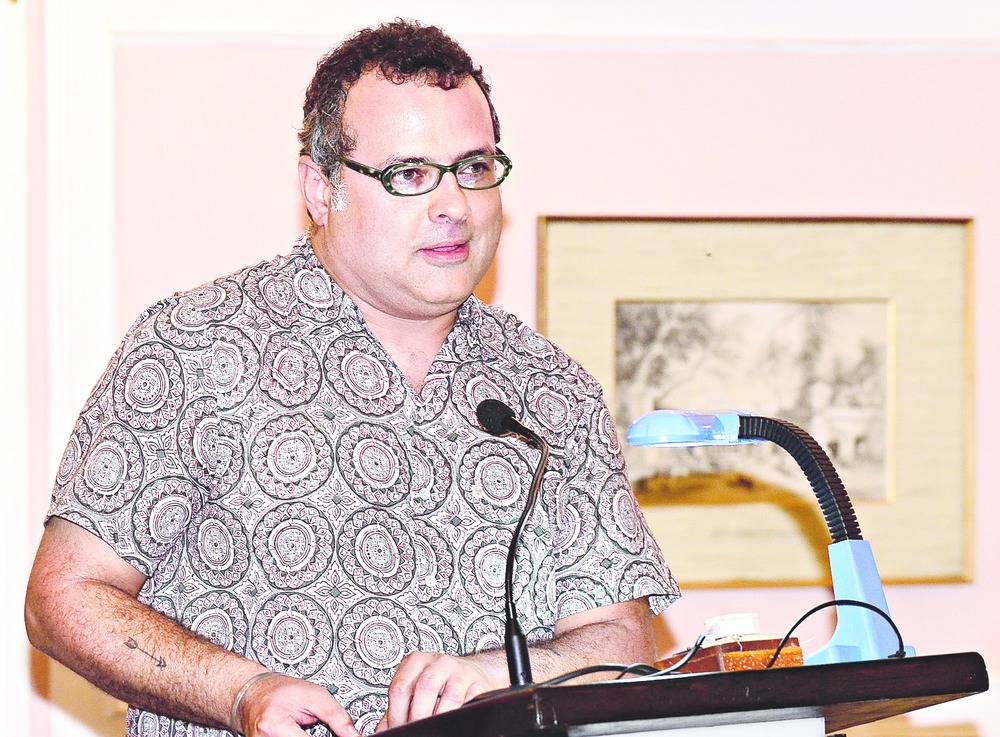
"What bothers the middle class more than anything is inconvenience," stated the speaker. "So if you can take care of traffic and garbage, then you're on the way to being a legitimate power. The rest is, you know, gravy."
The venue might have sounded like Alimuddin Street or the Centre for Marxian Studies at Jadavpur University, but it was, in fact, the Bengal Club, where the son of former club president Pran Prashad, the Marxist historian and journalist Vijay Prashad, recently delivered a talk on violence and imperialism in West Asia.
Drawing on material from his newly published book, The Death of the Nation and the Future of the Arab Revolution, Prashad outlined a genealogy of current turmoil in the Arab world, finding in the Western and Saudi policies dating back to the mid-20th century the origins of ISIS and other terror groups today.
His book encourages readers to scrutinise the social conditions that have given rise to terrorism. "If nothing else," Prashad said, "I would like the answer to every question not to be terrorism."
Both professionally and socially, Prashad is a strikingly global person. He is a frequent contributor to Frontline and The Hindu in Chennai, Alternet in San Francisco, Birgün in Istanbul, and The Guardian in London. He's recently reported from countries as varied as Canada, Libya, India and Brazil; in the past, critics have found fault with his praise of authoritarian regimes in Venezuela and China. He spends much of the year with his family in the United States, where he's a professor at Trinity College of Hartford, Connecticut.
Though American, his wife is a communist. "We stayed within caste," he explained.
Throughout his talk, Prashad made a point of identifying himself as primarily a storyteller. His scholarship aside, Prashad's years of reporting have furnished him with extraordinary anecdotal material.
He's been in touch with an arms dealer connected to Israel and India, who talks freely of the "bribes - no, sorry, 'transaction costs'" that are involved. A member of al-Qaeda once told Prashad the name of a Kuwaiti sheikh who visits and finances the group.
After excoriating Saudi Arabia during a talk in Washington, Prashad was approached while at a urinal by a man who whispered into his ear: "It's okay to criticise a country, but it's dangerous to defame it."
Reporting on Syria, Prashad met Steven Sotloff and befriended James Foley, the two American journalists who were beheaded by ISIS. His book includes a lengthy discussion of ISIS's oil trade, a murky business which seems to involve Bilal Erdoðan, the son of the Turkish President; an Israeli-Greek broker operating from Turkey; and Ceyhan, a Turkish port close to a US air base.
Prashad writes feelingly of an encounter he had with a young fighter engaged in jihad for want of a job. Mohammed is impressed by the "sheer audacity" of ISIS, Prashad writes. "They care for nothing - not the borders or the old order. Mohammed likes this. It excites him."
Prashad's ability to sympathise with someone like Mohammed is, perhaps, an indirect result of his adolescence during the grand old days of the Calcutta Left. It was at the 1981 Calcutta Book Fair where, as a 14-year-old, he bought his first copy of Marx.
Though he was shipped off to The Doon School at a young age, Prashad frequently returned home. He grew close to his aunt Brinda Karat, the current Rajya Sabha MP for the CPM, and was inspired to join the party himself.
Prashad bemoans the loss of a hopeful, dynamic Left culture in Bengal, but still has family, friends, and "comrades" to visit in Calcutta. He says he often speaks at Jadavpur University, where the students continue to be "sensitive".
"In five minutes, you see 10 disturbing sights," he said. "If you are sensitive, you want to talk about it. If you are insensitive, you don't give a s...t."











